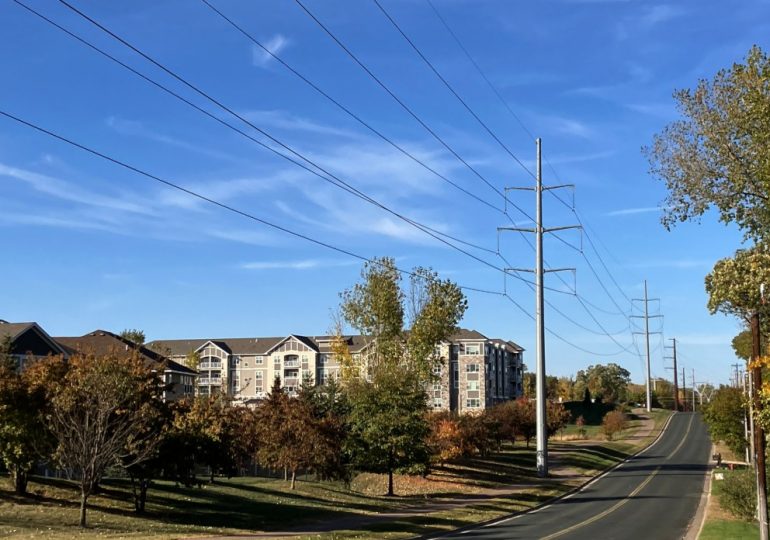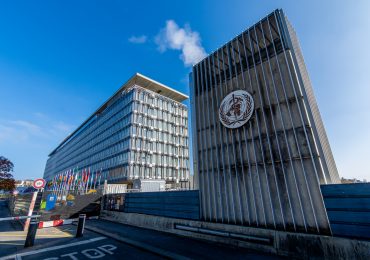More Minnesota cities are turning to utility customers to fund climate and sustainability projects.
The Twin Cities suburb of Eagan is among the latest municipalities to begin collecting what’s known as a “franchise fee” from gas and electric companies in exchange for allowing pipelines, power lines and other infrastructure in public rights-of-way. The charges are typically passed on to customers in the form of a small monthly line item on their utility bills.
As is the case with a growing number of cities, Eagan leaders last year decided to dedicate funds from its franchise fees toward its climate and sustainability efforts. It hired its first sustainability coordinator and is drafting a climate action plan that will be implemented in part with the expected $1.5 million in annual franchise fee revenue.
“It’s hard to launch a sustainability initiative without a way to sustain it,” said Gillian Catano, the city’s sustainability coordinator. “This helps us with long-term planning and allows us to work on projects supporting our operations and to support projects in the community.”
Use of franchise fees growing
Cities have collected franchise fees from public utilities for decades, but today the charges are emerging as a potentially important revenue source to help budget-strapped local governments make progress toward climate targets. In the Twin Cities, Minneapolis has long used the fees to fund sustainability work, and St. Paul is considering a plan to do the same. Other examples include the suburbs of Edina and Hopkins.
“We’ve seen a growing number of cities, across Minnesota and nationally, leveraging utility franchise fees as a tool to fund climate action and sustainability efforts,” said Julia Eagles, associate director of utility and regulatory strategy for the Institute for Market Transformation, a national nonprofit that promotes public policy to reduce building emissions. “It reflects a broader shift towards cities seeking stable, locally controlled funding sources for urgent climate priorities.”
A National Renewable Energy Laboratory research paper in 2021 found over 3,600 municipalities collect franchise fees from their utilities and 13% use part of that money for clean energy-related projects. The work being funded by franchise fees include energy efficiency programs, municipal fleet electrification, solar panel installations, and other clean energy-related investments.
Abby Finis, a consultant who works with local governments on climate action, said in the past, many cities added the fees into the general fund to pay for various city services. What’s different now, she said, is that more communities are tying them to sustainability staff and projects.
“The franchise fee is something that’s already set up, and you can increase it a little bit without hurting people’s wallets too much,” Finis said.
However, Finis cautioned that the money doesn’t “get anywhere near the amount needed to reach our goals.”
Sometimes cities are maximizing those dollars by using them to leverage additional funds, such as through the federal Inflation Reduction Act or Minnesota’s ECO (Energy Conservation and Optimization) Act, she said.
How other cities are using funds
Minneapolis uses its franchise fees to fund a unique partnership between the city and utilities Xcel Energy and CenterPoint Energy. The National Renewable Energy Laboratory’s research highlighted the partnership, which was intended to accelerate progress toward the city’s climate goals but has faced questions about its effectiveness. The city increased its franchise fee in 2023, a per-household increase of about $12 per year, according to Patrick Hanlon, the city’s deputy coordinator for sustainability.
“It was a pretty minimal increase for residential customers,” Hanlon said. Projects funded partly by franchise fees have saved city residents more than $150 million annually in energy costs and helped weatherize more than 5,000 low-income units, he added.
Hanlon is also mayor of the nearby suburb of Hopkins, which recently started using its franchise fees to pay for solar, e-bike and electric vehicle charging initiatives.
St. Paul Mayor Melvin Carter recently proposed charging residential franchise fees to fund weatherization, tree planting, and pay the salary of a new climate action coordinator.
In the past, St. Paul’s climate action budget has come from general funds and grants.
“This would be the first uniquely dedicated funding for the city’s broad portfolio of climate work,” said Russ Stark, the city’s chief resilience officer.
Edina began using franchise fees for clean energy projects in 2015. Today, according to sustainability manager Marisa Bayer, the suburb receives about $950,000 annually from franchise fees, most of which is invested in city operations to improve efficiency, add renewable energy, and electrify municipal buildings and transportation. The money also funds a sustainable building ordinance and other policy measures.
“The great thing is that because we have this dedicated funding source, we can move forward with projects, either identified in our capital improvement plans or supported by our community,” Bayer said. “We don’t have to go to council every year or rely solely on grants to help fund this work.”
Minnesota cities tap utility fees to help fund local clean energy and climate action is an article from Energy News Network, a nonprofit news service covering the clean energy transition. If you would like to support us please make a donation.
Leave a comment




